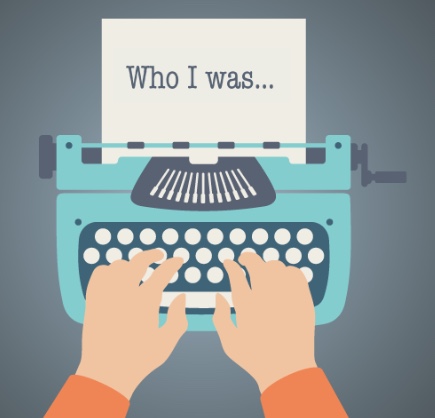When Susan deLarios’s mother passed away, she had to scramble to finish the obituary before the funeral. By contrast, when her father died a few years earlier, his obituary was already done—he had written it himself. Given how much easier that made life for her, deLarios said, “Now I tell people: you need to write your obit.”
A growing number of people are doing just that: they’re crafting their own obituaries as a gift to their families and as a way of having the last say in summing up their lives. Some write them when death is imminent; others prepare them as an exercise in contemplating mortality.
Whatever the motivation, writing your own obituary ensures the facts are correct, relieves your family of one of the more difficult tasks of the funeral arrangements and allows you to communicate key wishes, such as where friends and family should direct memorial donations.
Self-obits are part of a broader phenomenon: growing cultural acceptance of talking about death. The same “death positive” movement that has led people to gather in Death Cafes to talk about passing, or to read bestselling books like Atul Gawande’s Being Mortal (2015), is also encouraging people to prepare the last word on their own lives.
While USA Today dubbed them “selfie obits,” self-obits are much more than narcissistic exercises, according to Frank Joseph, a rabbi serving four congregations in Texas. “A prewritten obit relieves a lot of stress for the family during a stressful time. And it ensures that the loved one is being remembered exactly for what they wanted to be remembered for.”
Having the Last Say
When journalist Ken Fuson passed away in early 2020, friends alerted his family that he’d likely written his own obituary. Fuson taught writing classes; his first assignment to students was to write their own obituaries.
After cracking the passcode on Fuson’s computer, family members did indeed find an obituary written in Fuson’s distinctive, funny voice. The obit ticked off his many journalism awards, followed by a humorous crack: “No, he didn’t win a Pulitzer Prize, but he’s dead now, so get off his back.” Fuson’s son, Jesse, posted the obituary on Facebook—it was long and too costly to print in the Des Moines Register, where Fuson worked for years. The obit went viral. Major news outlets picked up the story.
Don’t store your obit in a password-protected computer or a safe deposit box.
“It was really awesome to read someone’s own thoughts on their life after they had died,” Jesse Fuson said. “You could see the humor shine through. It was just a great thing to be left with, not to mention the partial fame it created, which was hilarious in its own way. Dad would be rolling in his urn if he had known his obit was on Fox News.”
Fuson’s story offers an important caveat: if you write your own obit, you must tell your family or friends that you did so and tell them how to access it. Don’t store it on a password-protected computer (unless you share that password) or in a safe deposit box, which may be sealed temporarily after death.
“Make sure you’ve told all of your children or other next of kin that you’ve done this,” advised Keely Gilham, a funeral director in Arlington, TX. “Make each of them a folder with all of your final wishes, including copies of the obit as well as other important docs, such as your will, preplanned funeral arrangements or life insurance policy.”
A Chance to Review
Fifteen years ago, Cindy Kyle sat down with a glass of wine and spent an evening completing an online form with her final wishes, including a section for her obituary. Although she was in her 40s at the time and in good health, it felt natural for a “dreadfully organized person” who keeps her affairs in order. She listed her family members and details of her schooling, work history, special interests and hobbies, and added words of gratitude for important people in her life.
Instead of being upsetting, she said, “I had a blast. It was a way of summarizing the joys and accomplishments of my life, to think about what’s important and what I want people to know about me.”
Resources abound to help self-obit writers get started. ObitKit: A Guide to Celebrating Your Life (2009) by Susan Soper is a workbook for recording important facts and life events as well as end-of-life wishes. Legacy.com, an online publisher of obits, offers an extensive archive of articles on crafting an obituary, as well as a compilation of examples of auto-obits. Websites for end-of-life planning, such as Everplans.com, provide places to upload and store an obit (along with other key documents) as well as checklists of information to consider for inclusion.
Most obituaries typically include basic information such as the deceased’s surviving family members, religious and organizational affiliations, career and other accomplishments, as well as details on the funeral. Checklists, templates and step-by-step guides abound online. But keep in mind that there’s nothing that dictates what a self-obit writer must include. (Consider the humorous, two-word self-obit of 85-year-old Douglas Legler: “Doug Died.”)
It’s not a resume. It’s a representation of how you lived.
— Alan Gelb
Writing your obituary can serve as a memento mori—practice for confronting your mortality and taking stock. For some, it spurs positive life corrections, said Joseph, the rabbi. He cited the example of Alfred Nobel, the inventor of dynamite. After reading his own obituary (published in error), which called him a “merchant of death,” Nobel bequeathed his fortune to institute the Nobel Prize. As he hoped, he’s now remembered for the Nobel Peace Prize, rather than for his invention.
A life-review writing exercise benefits people at any age, said Alan Gelb, author of Having the Last Say, Capturing Your Legacy in One Small Story (2015.) After observing how high school students benefited from writing college application essays, he created prompts for similar writing exercises for older people, which he dubbed “Last Says.”
To maximize readership and create an interesting tale, Gelb encourages writers of self-obits to look for a narrative arc and to lead off with a statement that captures their essence.
“Don’t try to tell your entire life story or get hung up on having to cover everything,” he said. “It’s not a resume. It’s a representation of how you lived.”
An obituary can be funny or serious, short or long, factual or more contemplative. Joan Calhoun’s in-laws wrote their own obits, which were published when they passed away just seven days apart. Her mother-in-law’s obit was short and sweet; her father-in-law’s was lengthy and full of details. Each reflected their respective personalities.
“That was them,” Calhoun said. “That’s how they were. She was quiet; he was a storyteller who never met a stranger. I just think that [writing one’s obit] is a wonderful thing to do.”
Considering the Cost
In her self-written obituary, comic writer Jane Lotter quipped, “I’d tell a few jokes, but they charge for these listings by the column inch.” Generally, prewritten obituaries won’t save families money. For one thing, many funeral homes will prepare a basic obit (based on information the family provides) as part of the overall cost of the funeral package; others may charge a nominal fee.
The biggest cost is publishing the obit, and often there’s sticker shock. Newspapers typically charge per word or per line; a short obituary can easily run $200-$600 in a major market paper, whereas a long one can cost upward of $1,000. A photo adds to the cost.
Note that newspaper editors distinguish obituaries written by a reporter (typically for locally prominent people) from the paid write-ups provided by the deceased’s family or a funeral home. While newspapers publish reporter-written obituaries at no charge, families usually have no control over what’s included in the final story.
Some newspapers and funeral homes post obituaries online for a nominal fee ($50-$100) regardless of length. If budgets are limited, Gilham advises families to publish a brief obit in the newspaper’s print edition, with basic facts and funeral arrangements, and a longer version online. Bottom line: keep in mind that a long obit could be costly.
Taking Control
Toward the end of his life, Reid Coleman worried that family conflict would arise over the planning of his funeral and obituary, given one relative’s tendency toward intrusiveness. To pre-empt that, he wrote his own obituary and planned his funeral in detail. It worked—his wife, Kate Coleman, was able to execute his wishes and fend off potential meddling.
However, Coleman trusted his wife to see things through on his behalf. If you don’t have a reliable next of kin who will follow your wishes, you should enlist legal advice if it’s imperative to have your self-obit published as is. Laws vary by state; in some states it may be possible to appoint an agent to handle funeral and burial details, including the obituary.
Don’t include your obituary in your will, because it may not be discovered until it’s too late. Funerals (and the publication of an obituary) generally take place immediately after death and before an executor takes control of the deceased’s estate.
But keep in mind that total control isn’t always a positive. Because most people don’t always see themselves as fully as others do, a self-written obit may be limited.
That’s one slight regret that Kate Coleman has about her husband’s self-obit: he didn’t brag about himself enough. He didn’t share how he devoted the latter half of his career to reducing medical errors. The obit chronicled his career but failed to mention that he developed a hospital bracelet that uses scannable codes to prevent mistakes.
“He was a ‘just the facts’ guy and the obit reflected that,” she said. “But I got cards from his colleagues talking about his accomplishments and how meaningful they were.”
Looking back, deLarios often thinks of things she wishes she’d included in her mother’s obituary but overlooked due to lack of time. But she’s certain her father’s obit included everything important to him, including details about his military service and his involvement in the Masons.
“That floored me,” she said. “I would’ve never thought of putting that in his obit. Reading his words after he was gone, and seeing what he considered was important, was very profound.”

Freelance writer Mary Jacobs lives in Plano, TX, and covers health and fitness, spirituality, and issues relating to older adults. She writes for the Dallas Morning News, the Senior Voice, Religion News Service and other publications; her work has been honored by the Religion Communicators Council, the Associated Church Press and the American Association of Orthopaedic Surgeons. Visit www.MaryJacobs.com for more.



